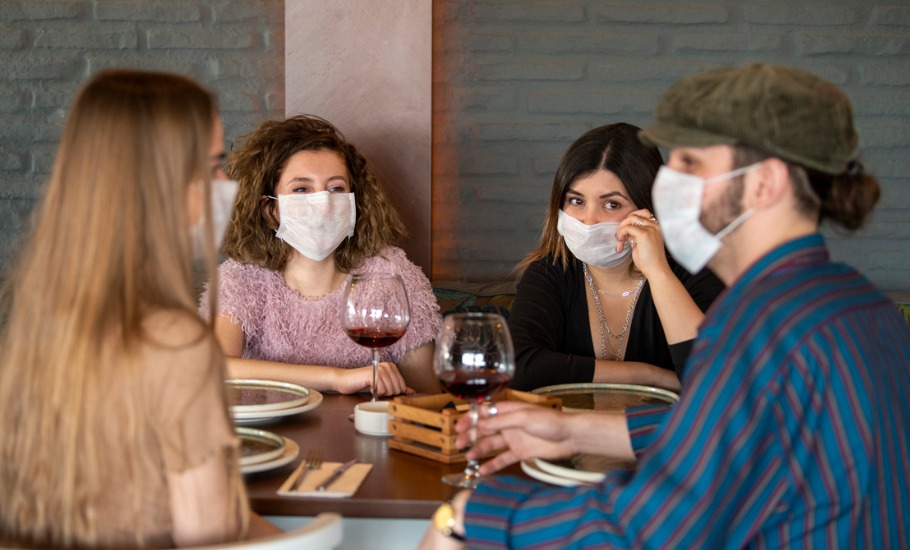
Dining out, going to pubs linked to contracting COVID-19: US study
Close contact with COVID-19 patients, and dining at restaurants and pubs, are associated with testing positive for the novel coronavirus infection, according to a study of outpatients from 11 US health care facilities.

Close contact with COVID-19 patients, and dining at restaurants and pubs, are associated with testing positive for the novel coronavirus infection, according to a study of outpatients from 11 US health care facilities.
According to the research, published in the US Centers for Disease Control and Prevention’s (CDCs) Morbidity and Mortality Weekly Report journal, adults who tested positive for the novel coronavirus SARS-CoV-2 were nearly twice as likely to have reported dining at a restaurant than those with negative test results.
To assess community and close contact exposures associated with COVID-19, the scientists, including those from the US National Institutes of Health, assessed the exposures reported by 154 adult case-patients, who were diagnosed using RT-PCR tests, and compared these with data from 160 control-participants who showed symptoms, but had negative test results.
According to the study, the data collected by the scientists from the participants included demographic characteristics, information on underlying chronic medical conditions, symptoms, and self-rated physical and mental health.
They also collected data from the participants about close contact — within 6 feet for 15 minutes or more — with a person with known COVID-19, workplace exposures, mask-wearing behaviour, and community activities in the last 14 days before they started experiencing symptoms.
“Case-patients were more likely to have reported dining at a restaurant (any area designated by the restaurant, including indoor, patio, and outdoor seating) in the 2 weeks preceding illness onset than were control-participants,” the study noted.
When the scientists restricted their analysis to those without known interaction with a COVID-19 patient, the respondents were more likely to report dining at a restaurant, or going to a bar or coffee shop than the control-participants.
“Exposures and activities where mask use and social distancing are difficult to maintain, including going to places that offer on-site eating or drinking, might be important risk factors for acquiring COVID-19,” the scientists wrote in the research.
They said such exposures in restaurants could be linked to air circulation.
“Direction, ventilation, and intensity of airflow might affect virus transmission, even if social distancing measures and mask use are implemented according to current guidance,” the study noted. Masks cannot be effectively worn while eating and drinking, whereas shopping and numerous other indoor activities do not preclude mask use, the scientists said.
Citing the limitations of the study, the researchers said the sample included only 314 symptomatic patients who actively sought testing during July 1 to 29 at 11 health care facilities, and may not represent the whole US population.
They said the the study’s survey question assessing dining at a restaurant did not distinguish between indoor and outdoor options.
The scientists also added that the query to participants about going to a bar or coffee shop did not distinguish between the venues or service delivery methods, which might represent different exposures.
Since the participants were aware of their SARS-CoV-2 test results, they said this information could have also influenced their responses to questions about community exposures and close contacts.
However, as communities reopen, the researchers believe efforts to reduce possible exposures at locations offering on-site eating and drinking options should be considered to protect customers, employees, and communities.
They said continued assessment of various types of activities and exposures as communities, schools, and workplaces reopen is important.
“Implementing safe practices to reduce exposures to SARS-CoV-2 during on-site eating and drinking should be considered to protect customers, employees, and communities, and slow the spread of COVID-19,” the scientists concluded.
(Except for the headline, this story has not been edited by The Federal staff and is published from a syndicated feed.)

